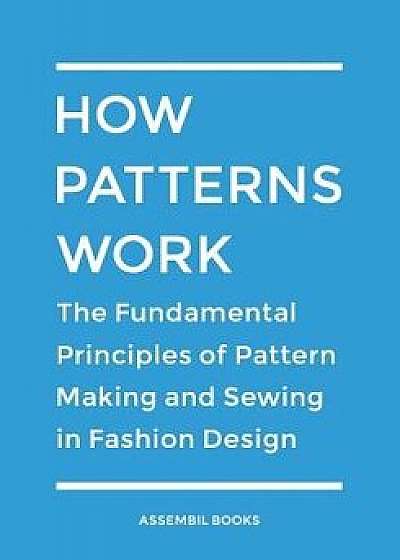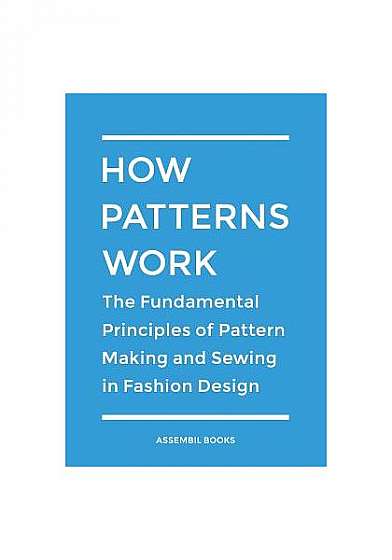
How Patterns Work: The Fundamental Principles of Pattern Making and Sewing in Fashion Design, Paperback/Assembil Books
Descriere
Contributor(s):Author: Assembil Books When you are trying to learn something new, the best teachers are often the ones who will walk you slowly through all of the basics in a way that is straightforward and easy to understand. It is this approach to learning that has lead us to create "How Patterns Work," so that those who wish to learn pattern making can have a simplified and streamlined introduction to all of the fundamental principles that lie at the core of pattern making. If you have tried to learn pattern making in the past and felt daunted by the complex drawings and measurements, or are a sewer who has felt ill equipped to make even the simplest changes to patterns, then this is the ideal book for you. We believe that by having a solid understanding of the basic terms and processes of pattern making then you will be able to make simple pattern changes yourself, and be able to apply the same ideas to more complex pattern changes in the future. No previous knowledge of pattern making is required. Chapters start from zero assumed knowledge and build slowly in complexity with step-by-step examples and clear diagrams. Please note that this book does not include paper patterns and does not cover specific pattern or block drafting exercises from measurements. Instead, this book will provide you with an overview to simplify the way you think about pattern making, arming you with knowledge that can be applied to any pattern change. As an introductory book, "How Patterns Work" has been designed to work as a companion alongside more complex pattern drafting books. In a way, the first half of the book is almost like a long form dictionary of pattern terms to help provide a thorough explanation of all the different features of patterns such as grain lines, seam allowances, darts and notches. All of the examples are discussed in relation to how the pattern will ultimately be sewn, so that the principles become more relevant to real sewn garments. The first section of the b





